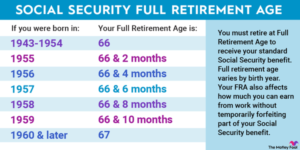You’re thinking about retiring in beautiful Costa Rica, but first, you need to know how the healthcare system works for retirees. In Costa Rica, you’ll find a well-regarded public healthcare system known as the Caja Costarricense de Seguro Social (CCSS or simply “Caja”), which offers comprehensive medical services to residents, including expats. By enrolling in the Caja and paying a monthly fee based on your income, you gain access to hospitals, clinics, and various medical professionals throughout the country. In addition to the public system, private healthcare options are aplenty, allowing you to choose facilities and doctors that suit your preferences. Costa Rica’s blend of public and private healthcare ensures that you receive quality medical care during your retirement years in this paradise. Have you ever wondered how healthcare works for retirees in Costa Rica? If you’re considering retiring to this beautiful Central American country, understanding the healthcare system is crucial. Many retirees are drawn to Costa Rica for its stunning landscapes, affordable living costs, and a welcoming expat community, but it’s the healthcare system that truly stands out.
Costa Rica boasts one of the best healthcare systems in Latin America, offering high-quality care at a fraction of the cost compared to the United States and other developed countries. Let’s dive into the nitty-gritty details of how it all works, so you can make informed decisions about your retirement plans.

Check out our recommended retirement gifts!
Overview of Costa Rica’s Healthcare System
Costa Rica’s healthcare system is known for its quality and affordability. It consists of both public and private sectors, giving retirees the flexibility to choose the type of care that best suits their needs. The Costa Rican government has invested heavily in healthcare, resulting in facilities that are modern, well-equipped, and accessible.
The Public Healthcare System (Caja)
The public healthcare system in Costa Rica, known as Caja Costarricense de Seguro Social (CCSS) or simply “Caja,” is funded by mandatory contributions from employers and employees, as well as government subsidies. This system is comprehensive, covering a wide range of medical services from routine check-ups to major surgeries.
Pros:
- Affordable: The contributions are generally low, especially for retirees.
- Comprehensive: Coverage includes everything from medications to surgeries.
- Accessible: Facilities are available throughout the country.
Cons:
- Waiting Times: Public facilities can have long waiting times, especially for non-urgent procedures.
- Language Barrier: Although many doctors speak English, this isn’t guaranteed in all facilities.
| Pros | Cons |
|---|---|
| Affordable | Long waiting times |
| Comprehensive coverage | Possible language barriers |
| Accessible facilities |
The Private Healthcare System
Private healthcare in Costa Rica is also top-notch, offering world-class facilities and services. Many retirees opt for private healthcare to avoid long waiting times and to receive care in a more comfortable setting.
Pros:
- Short Waiting Times: You can usually see a specialist within a few days.
- High Standards: Facilities often meet or exceed international standards.
- English-Speaking Staff: More likely to have English-speaking doctors and nurses.
Cons:
- Cost: More expensive than public healthcare, although still affordable compared to the U.S.
- Insurance Complications: May require international health insurance, which can be costly.
| Pros | Cons |
|---|---|
| Short waiting times | More expensive than public |
| High standards | Insurance complications |
| English-speaking staff |
Healthcare Costs for Retirees
One of the most appealing aspects of retiring in Costa Rica is the affordable healthcare. Let’s break down the costs associated with both public and private healthcare options.
Public Healthcare Costs
When you enroll in the Caja after becoming a legal resident, your monthly contribution is based on your reported income. Typically, this ranges from 7% to 11% of your monthly income, translating to anywhere between $50 and $150 per month for most retirees.
Private Healthcare Costs
The costs for private healthcare can vary widely. For example, a consultation with a specialist might cost between $50 and $100, while a major surgery could range from $5,000 to $15,000. Many retirees opt for private health insurance, which can cost between $1,000 and $3,000 annually, depending on age, health status, and coverage level.
Comparison Table: Public vs. Private Healthcare Costs
| Service | Public Healthcare (Caja) | Private Healthcare |
|---|---|---|
| Monthly Contribution | $50 – $150 | Not applicable |
| Specialist Consultation | Free (with long wait) | $50 – $100 |
| Major Surgery | Minimal cost | $5,000 – $15,000 |
| Health Insurance | Not applicable (covered by Caja) | $1,000 – $3,000 annually |
Check out our recommended retirement gifts!
How to Enroll in Costa Rica’s Healthcare System
Enrolling in Costa Rica’s healthcare system is straightforward but involves navigating some bureaucracy. Here’s a step-by-step guide to help you through the process.
Enrolling in the Public System (Caja)
- Obtain Residency: To be eligible for Caja, you must first obtain legal residency. This can be through various visa programs such as the Pensionado (retirement) or Rentista (self-sufficient) visas.
- Caja Registration: Once you have your residency, you’ll need to visit a local Caja office to register. Bring your residency documents, ID, and proof of income.
- Monthly Contributions: After registration, you’ll need to set up your monthly payments. This can usually be done at a local bank.
- Receive Your Card: Once your payments are set up, you’ll receive a healthcare card that grants you access to public healthcare services.
Enrolling in Private Healthcare or Insurance
- Research Providers: Look into different private healthcare providers and insurance plans available to expatriates in Costa Rica.
- Select a Plan: Choose a plan that best fits your needs and budget. Consider factors like premiums, coverage, and network of hospitals.
- Application Process: Complete the necessary application forms. You may need to undergo a medical examination depending on the provider.
- Payment: Set up your payment plan for premiums, either annually or monthly.
Quality of Healthcare Services
Costa Rica is renowned for the quality of its healthcare services. Both public and private systems have their unique advantages, but they share a commitment to high standards of care.
Public Healthcare Quality
Public healthcare facilities are generally well-maintained, with modern equipment and qualified medical staff. The government continually invests in improving healthcare services, ensuring that patients receive effective and timely care.
Private Healthcare Quality
Private hospitals and clinics in Costa Rica are known for their excellence. Many are accredited by international organizations, offering cutting-edge technology and treatments. The doctors often have international training and experience, which adds an extra layer of reassurance for retirees seeking medical care.

Common Medical Services for Retirees
Retirees moving to Costa Rica often need regular medical services, whether it’s routine check-ups, dental care, or treatments for chronic conditions. Here’s an overview of some commonly needed medical services.
Routine Check-ups
Both public and private healthcare systems offer routine medical check-ups. In the public system, these are usually covered by your Caja contributions. In the private system, check-ups can range from $50 to $150.
Dental Care
Dental care in Costa Rica is both high-quality and affordable. Public healthcare covers basic dental services, but for more complex procedures like implants, you might prefer private care. Costs are significantly lower than in the U.S., with a dental cleaning costing around $50 and an implant around $1,000.
Prescription Medicines
Most prescription medications are readily available and affordable in Costa Rica. In the public system, medications are included in your Caja contributions. In the private sector, you’ll pay out of pocket or through insurance, but prices are still relatively low.
| Service | Public Healthcare (Caja) | Private Healthcare |
|---|---|---|
| Routine Check-up | Covered | $50 – $150 |
| Dental Cleaning | Covered | $50 |
| Dental Implant | May not be covered | $1,000 |
| Prescription Medicines | Covered | Low out-of-pocket cost |
Healthcare Accessibility in Costa Rica
Accessibility to healthcare services is another crucial factor for retirees. Fortunately, Costa Rica excels in this area, with healthcare facilities available throughout the country.
Urban Areas
In urban centers like San José, you’ll find a concentration of both public and private hospitals, clinics, and specialized medical facilities. The accessibility is excellent, with many facilities being a short drive or even a walk away.
Rural Areas
In rural areas, public healthcare clinics (EBAIS) are widely available, although specialized services might require traveling to a larger city. Private healthcare facilities are less common but still present in popular expat locations.
Emergency Medical Services
Understanding emergency medical services is crucial for peace of mind. Both public and private systems offer emergency services, but there are differences in speed and comfort.
Public Emergency Services
Public hospitals have emergency departments equipped to handle a wide range of urgent medical issues. However, these can be crowded, and wait times can be long during peak hours.
Private Emergency Services
Private hospitals provide quicker and more comfortable emergency services, although at a higher cost. If you have private health insurance, emergency services are usually included in your coverage.
Health Insurance Options for Retirees
Health insurance is a key consideration for retirees in Costa Rica. You have the option to rely solely on Caja, but many choose to supplement with private health insurance for more comprehensive coverage.
International Health Insurance
International health insurance plans offer comprehensive coverage, including medical evacuation and treatment in other countries, which is particularly appealing for expats. These plans can be expensive but provide peace of mind.
Local Health Insurance
Local providers also offer health insurance plans tailored to expats. These plans are generally more affordable than international ones and provide adequate coverage for most medical needs within Costa Rica.
| Insurance Type | Pros | Cons |
|---|---|---|
| International Health Insurance | Comprehensive coverage | Expensive |
| Local Health Insurance | Affordable, good local coverage | Limited international coverage |
Alternative and Holistic Medicine
Costa Rica is also a haven for those interested in alternative and holistic medicine. From acupuncture to homeopathy, you’ll find a variety of treatments widely accepted and integrated into the healthcare system.
Popular Alternative Treatments
- Acupuncture: Widely available in both public and private sectors.
- Herbal Medicine: Many pharmacies and markets sell herbal remedies.
- Chiropractic Services: Increasingly popular and available in urban areas.
Retiree Testimonials
Hearing from other retirees can provide valuable insights. Many have praised the quality, affordability, and compassionate care that they receive in Costa Rica.
John and Mary’s Story
John and Mary moved to Costa Rica five years ago. According to them, “The healthcare here has exceeded our expectations. We use the public system for regular check-ups and minor issues, and rely on private care for more urgent needs. The costs are a fraction of what we’d pay back home, and the quality is just as good.”
Sarah’s Experience
Sarah, who has lived in Costa Rica for three years, shares, “I was initially worried about the language barrier, but most doctors speak English. I feel well-taken care of and find the healthcare system straightforward to navigate. It’s one less thing to worry about in retirement.”
Tips for Navigating Healthcare in Costa Rica
To make the most of Costa Rica’s healthcare system, consider these tips:
- Learn Spanish: While many healthcare providers speak English, knowing some Spanish can be beneficial.
- Keep Records: Maintain copies of your medical records and prescriptions.
- Explore Your Options: Research both public and private facilities to find what works best for you.
- Engage with the Expat Community: Other retirees can provide invaluable advice and recommendations.
Conclusion
In summary, Costa Rica offers a robust and affordable healthcare system that is well-suited for retirees. Whether you choose to rely on the comprehensive public healthcare system (Caja) or opt for private healthcare, you’ll find that the quality of care is excellent. With detailed information on costs, how to enroll, accessibility, and insurance options, you are now better prepared to make an informed decision about your healthcare needs in Costa Rica.
So, have you decided whether Costa Rica’s healthcare system is right for you? We hope this guide has provided you with the insights you need to take the next step in your retirement journey. Welcome to a healthier, happier retirement in Costa Rica!



